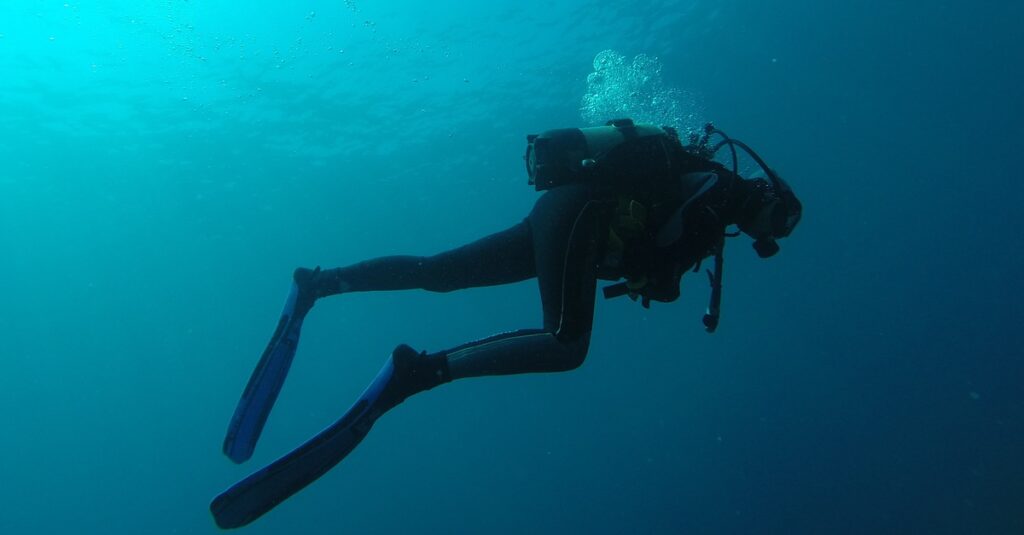

Scuba diving can cause vertigo either during your dive or as a post-dive effect. The severity of diving-related vertigo varies greatly depending on how capable you are in the water and any underlying conditions.
This article focuses on vertigo while diving and the relationship between scuba diving and nausea.
What Causes Vertigo?
In short, vertigo is caused by an imbalance in pressures in your ears. This causes inaccuracy in the information your brain receives, and it can be extremely disorienting.
The vestibular organ of your inner ear is part of your body’s system for controlling balance. If it’s not functioning properly, it sends incorrect signals to your brain that cause your vertigo.
This can happen for a number of reasons, including:
- Inner ear DCS
- Inner ear barotrauma
- Migraines
- Medication
- Head injuries
- Stroke
- Diabetes
- Decompression Sickness
- Hypoxia
- Contaminated air
The causes of vertigo may be underlying conditions that you weren’t aware of, such as inner ear infections, but recognition is essential for a proper response.
What Does Vertigo Feel Like?
Vertigo manifests in different ways, but it commonly feels like you or your environment are spinning without any actual movement happening. Common words to accompany vertigo include:
- Spinning
- Whirling
- Falling
- Tilting
It’s important to distinguish vertigo from dizziness, although both are considered balance issues. Dizziness refers to a general or overall feeling of losing your balance, while vertigo is the acute sensation of movement (either you or your surroundings).
Vertigo is usually more debilitating than dizziness, and it indicates a more serious problem.
Responding to Vertigo While Scuba Diving
“Stop. Breathe. Think. Act.” applies well when experiencing vertigo. You need to slow down, get some air, and then evaluate your condition. Check your depth so you know where you are, and focus on maintaining your position.
You should also signal your dive buddy for help by indicating there’s a “problem” (tilted hand). You can even use the sign for narcosis (twirled fingers near your temple) to let them know the nature of your issues.
Keep your regulator in your mouth if you feel nauseated; if you vomit it will exit properly, but if you take it out you risk losing it or inhaling water after you throw up.
If your symptoms do not subside, you need to abort the dive and have your buddy help you ascend safely. If the vertigo sticks around on land, the next step is consulting your doctor.
Can Scuba Diving Make You Nauseous?
You can feel nauseous before, during, and after scuba diving.
Nerves are the cause of pre-dive nausea, but once you get over them the nausea should pass. Making sure you’re well prepared for the dive as well as hydrated and nourished help limit your chance of nausea.
Vertigo is a common cause of nausea during your dive, but it also happens to individuals in the water. This usually starts on the boat and subsides during your descent, but the underwater conditions can worsen your sickness.
If you feel nauseous for any reason underwater remember to keep your regulator in your mouth.
Post dive nausea can be another effect of seasickness, but it’s also a symptom of serious problems such as inner ear damage or DCS.
If it’s the only symptom, wait and see if it subsides. If you’re still nauseous after an hour or two, it’s worth a trip to the doctor.
References
https://dan.org/safety-prevention/diver-safety/case-summaries/vertigo-after-dive/
